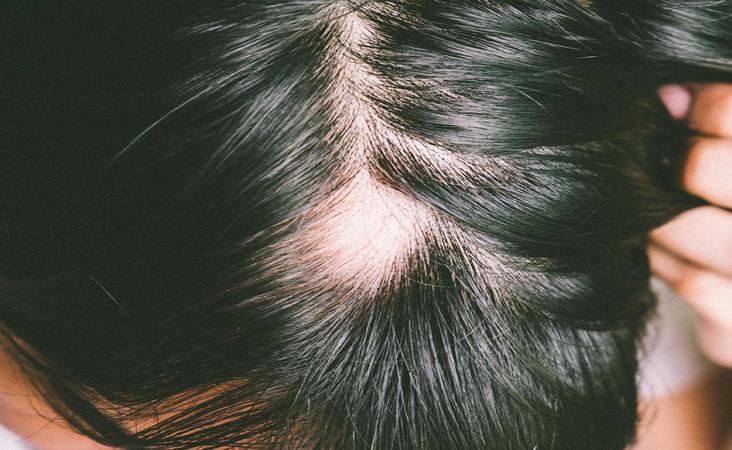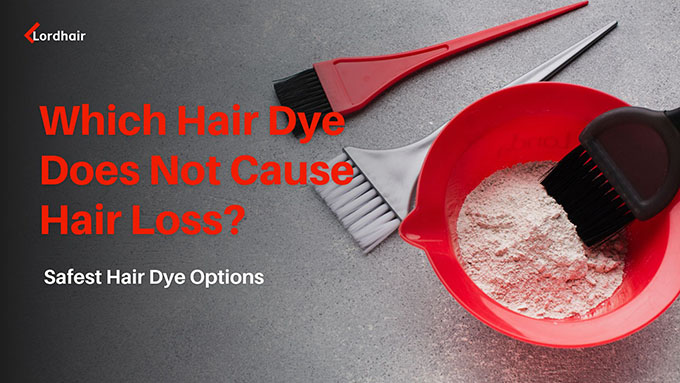Lupus Hair Loss: Everything You Need to Know
- Written by Lordhair Team
- | Published Aug 14, 2020
- |
- 5 min read
 Listen to the full text
Listen to the full textDealing with lupus hair loss without the right insights can be very scary. While health ramifications of this medical condition are pretty extreme, the emotional and psychological toll of looking into a mirror and seeing your hair fade away can be humungous as well.
Since a lot of people aren’t aware of lupus-related hair loss and hence aren’t able to take the right recovery steps, Lordhair decided to come up with a detailed guide that covers its meaning, symptoms, causes, and Lichen planopilaris hair loss treatment.
It only makes sense to begin with the meaning of lupus.
What is lupus disease?
Lupus is a systemic autoimmune disease that appears when our immune system attacks the tissues and organs. Also known as systemic lupus erythematosus, it causes a body-wide inflammation that affects different body systems including joints, skin, kidneys, blood cells, lungs, scalp tissues, and hair strands.
While hair loss seems the least damaging aspect of living with lupus, it has a lot of psychological impacts on patients and slows the process of recovery.
Lupus and hair loss: how are they related?
As lupus causes widespread inflammation throughout the human body, it can target your skin which is the largest organ of our bodies. Inflammation of skin can occur anywhere but most likely on the scalp, causing rashes and damaging the hair tissues. This often causes the hair to gradually thin out. In addition to hair loss on the scalp, hair also falls from eyebrows, eyelashes, beard, and other parts of the body.
Lupus can also cause your hair to become fragile and break off easily which leaves people with a ragged appearance called lupus hair. This hair problem is related to Alopecia and affects almost 45% of people to some degree. This might make you wonder how to know if you are suffering from lupus hair loss or some other hair conditions. Well, we will help you figure out!

Symptoms of lupus hair loss
Hair strand breakage: Lupus does not always affect your hair but when it does, there’s an increase in the number of shedding strands. If you notice some broken strands while taking a bath or rubbing your hair with a towel, don’t panic since we lose up to 100 hair strands a day.
If you notice more than a regular amount of shedding and other signs of lupus as well, then, it’s time to consult your doctor.
Low-grade fever: Another common early-stage symptom of lupus hair loss is a low-grade fever which happens for no apparent reason. Low-grade fever means that your body temperature is fluctuating between 98.5F to 101F. Such a fever could also be a symptom of inflammation, infection, or imminent flare-up.
If you are suffering from low-grade fevers from some time now, it is time to make an appointment and see your doctor.

Painful and swollen joints: In addition to hair loss, people suffering from lupus also experience pain, stiffness, and visible swelling in joints. Caused by inflammation, it may be mild at first but gradually becomes more obvious. Similar to fever, joint problems can suddenly come and go in lupus.
Whilst these were some of the most common symptoms of lupus hair loss, there are other signs that are pretty consistent in autoimmune diseases. Here are they:
- Fatigue
- Butterfly shaped rash on face
- Chest pain
- Shortness of breath
- Dry eyes
- Headache
Causes of lupus hair loss
Hair loss can happen even in the absence of any disease. However, there are some cases where it is related to diseases and also treatments prescribed for them. For patients fighting lupus, below are the major causes that trigger hair loss:
Discoid lupus: One of the major reasons for lupus hair loss is discoid lupus. Also known as scarring alopecia, this autoimmune condition results in disk-shaped lesions on the scalp and face. Sometimes, it can occur in other body parts as well. Discoid lupus lesions are red, scaly, and thick which thankfully do not hurt or itch.
As time elapses, discoid lesions will begin producing scarring and skin discoloration which will later make the hair fall out. If the lesions are caused by scarring, the hair loss may be permanent.
Medications: Usage of certain medications - some of them used to treat lupus hair loss as well - might also cause lupus-related hair loss. Hair fall caused by medications is mostly reversible but patients have to wait until lupus is in control to treat hair loss.
Advice from top hair experts: People experiencing hair loss due to medication side-effects should speak to their physician regarding dosage adjustment.

Inflammation: Another common reason behind lupus hair loss is inflammation, a widespread non-scarring symptom of lupus. It develops around the scalp and hair follicles which cause hair strands to fall out. Hair loss caused by inflammation can either be diffuse or localized. If localized, it will occur on the front part of your scalp.
Inflammation caused by lupus not only affects your scalp but also results in the loss of eyebrow, beard, and eyelash. Unlike discoid lupus, extreme hair fall caused by inflammation is reversible. Just make sure to treat it on time.
Now that you have a complete understanding of the meaning, symptoms, and causes of lupus hair loss, let’s spend some time discussing the treatments as well.
Tips and treatments to fight lupus hair loss
Many people believe that lupus hair loss is permanent. To be honest, it is at times but hair regrowth actually depends on the causes of the hair loss. You may not be able to fully reverse hair loss or thinning caused by lupus but you can minimize the damages by using the following tips:
Avoid sun exposure: Exposing scalp to the sun can cause photosensitivity among lupus patients and lead to several rashes on the scalp. This can worsen your hair loss condition. Avoid going outside when the sun is at its peak. Otherwise, protect your scalp by wearing a hat or cap.

Take a healthy diet: A healthy diet is essential to overcoming hair loss caused by lupus. Consuming a diet rich in fruits and vegetables will help you slow down hair loss to some extent. Consult your trichologist about vitamins and supplements intake to strengthen your strands and reduce lupus hair loss.
Keep the stress low: Too much stress can worsen hair loss condition. That’s why it is important to avoid dealing with stress as much as you can. Try to indulge yourself into exercise and meditation. Maintaining healthy mind and body states will help you avoid a lupus flare.
Get yourself a hair system: Sometimes, lupus hair loss isn’t preventable or reversible. On such occasions, it is best to try alternative hair recovery options such as hair systems. Also known as modern wigs for men, hair systems provide coverage for the area that has experienced extreme hair loss. Modern hair systems can be custom designed as per your head shape, hair texture, and style preferences.
Change your medication: Taking the wrong medication is a major reason behind aggravated lupus. If you think your medication is not working and the hair problem is worsening, then, it is time to speak with your doctor about changing your medication. If you feel that your medication is a major reason behind lupus hair loss, then, consider switching to alternative medicine or reducing your dosage.
While losing your precious hair to lupus is nothing but scary, hair loss can be reversed if the condition is identified and treated on time. In case you are late, going for hair recovery options like hair systems can help.
Lordhair has been helping men and women in over 100 countries fight hair loss triggered by conditions like lupus and tinea capitis. Browse our extensive catalogs of hairpieces for men and wigs for women to discover the perfect hair recovery solution for your condition.
Further reading on medical hair loss conditions:
Got any queries to ask? Email them at support@lordhair.com and have them answered by our hair experts.



